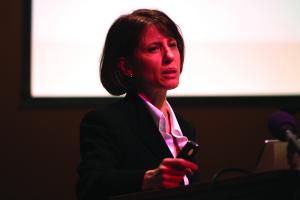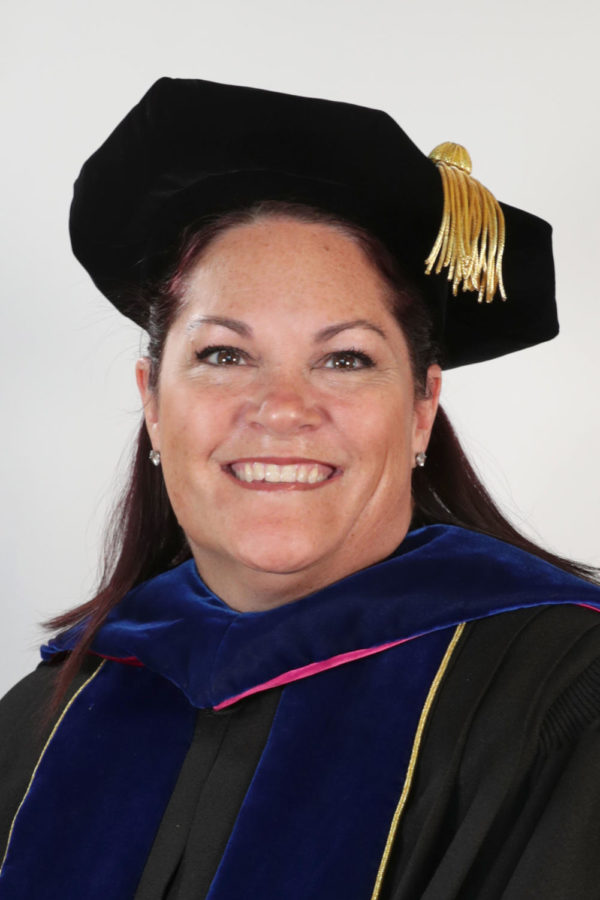 Ethan Magoc photo: Sara Laschever spoke at Mercyhurst about the power of negotiation for women in their professional lives.On average, when women choose to negotiate their salaries, they have their salary increased by $4,000. Only 3-5 percent of women do this, and this was the subject of Sara Laschever’s speech Tuesday at Walker Recital Hall at 7:30 p.m., titled, “Ask for It! Women and the Power of Negotiation.”
Ethan Magoc photo: Sara Laschever spoke at Mercyhurst about the power of negotiation for women in their professional lives.On average, when women choose to negotiate their salaries, they have their salary increased by $4,000. Only 3-5 percent of women do this, and this was the subject of Sara Laschever’s speech Tuesday at Walker Recital Hall at 7:30 p.m., titled, “Ask for It! Women and the Power of Negotiation.”
Laschever is the co-author of “Ask for It: How Women Can Use the Power of Negotiation to Get What They Want” and “Women Don’t Ask: The High Cost of Avoiding Negotiation and Positive Strategies for Change,” with Linda Babcock.
“It’s not about some way that women are broken or need to be fixed, or about how we need to be more like men,” Laschever said. Rather, it’s simply about asking more.
Women are less likely to ask for not only salary negotiations, but also recommendations, high profile teams or projects, or work in a different area, and this goes back to the day of birth and continues with socialization of children.
Nurses tend to see boy babies as more alert and stronger and girl babies as less alert and weaker, even when there is nothing to support this. Continuing this route, the toys we give children affect how they learn to act. Girls are given kitchenettes and tea sets, encouraging them to serve people, while boys are given train sets and building blocks, encouraging their self expression.
This continues throughout women’s lives, leaving women to wonder: How many other things are women not asking for?
Another interesting stance on this issue is in academia. Women claim 57 percent of bachelor’s degrees, 59 percent of master’s degrees and 46 percent of doctorates, yet they only make up 23 percent of college professors.
Negotiation is not something some people are born with and others aren’t, Laschever said. “It’s a skill set,” and can be learned and practiced.
Some important things for women to keep in mind for negotiating, Laschever said, are don’t accept the status quo or that everyone will be treated fairly, assume everything is negotiable, and do your research.
The purpose of the books they wrote are to help women, “Build confidence and develop the needed skills,” to negotiate.
World Language and Culture Department Chair Alice Edwards, Ph.D., said, “Given our history and constituency, it seems to me important that to develop our women students in a society where they face too many barriers.”
Edwards said the presentation was beneficial to all students regardless of gender because, “many men don’t understand how negotiation works, like with a starting salary.” This leads to women being labeled as troublemakers and taking what they are offered.
This lecture was presented by the President’s Task Force on Women and Leadership, and findings from the task force will be presented on Tuesday, March 22, at 3:30 p.m. in Mercy Heritage Hall.




